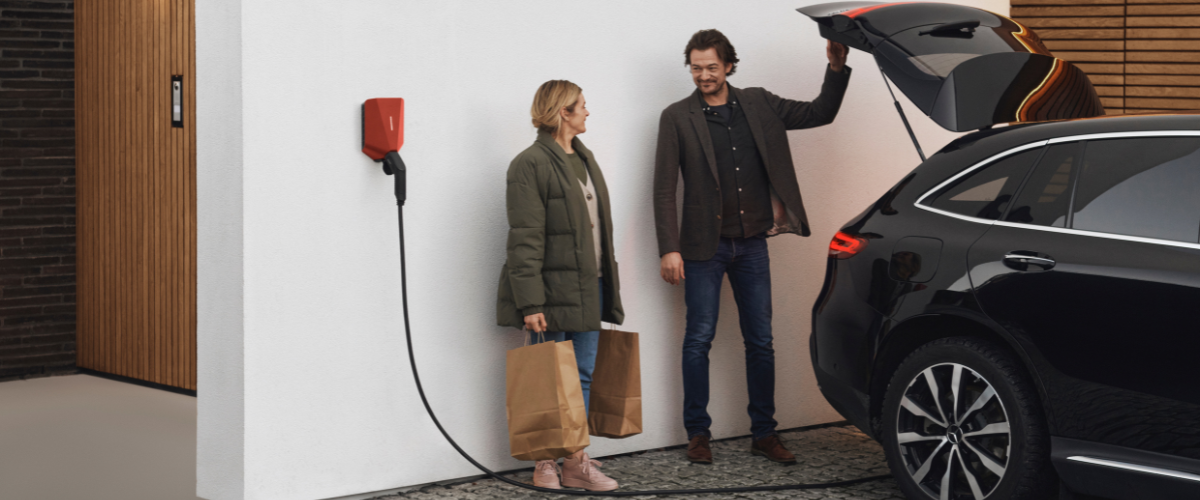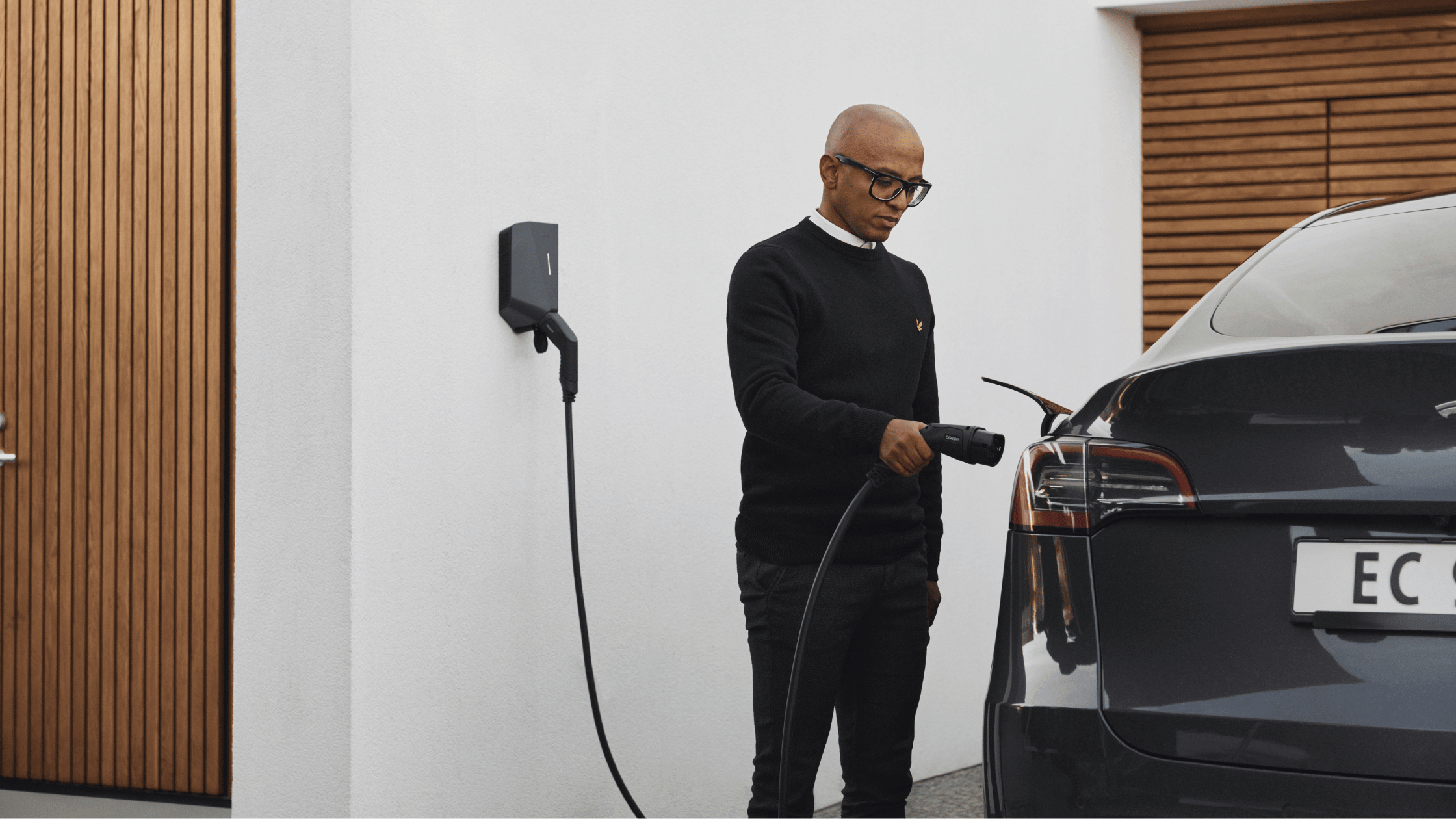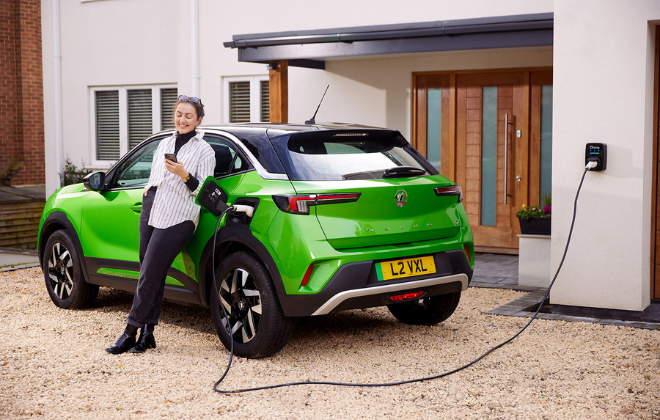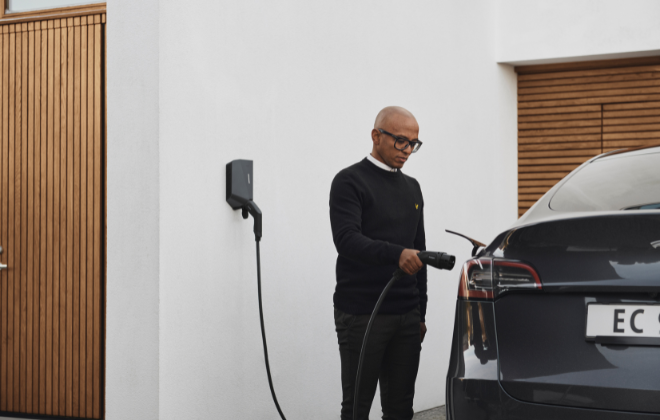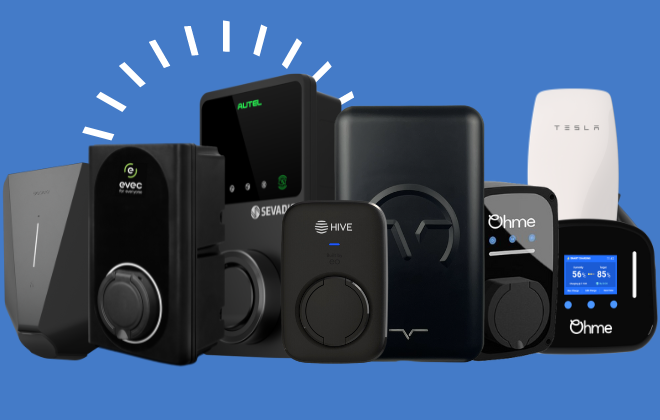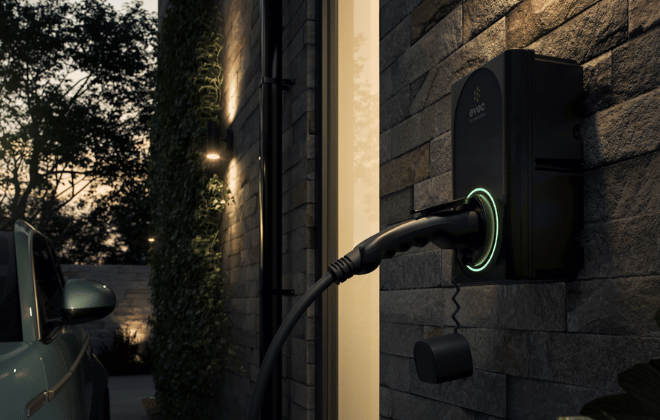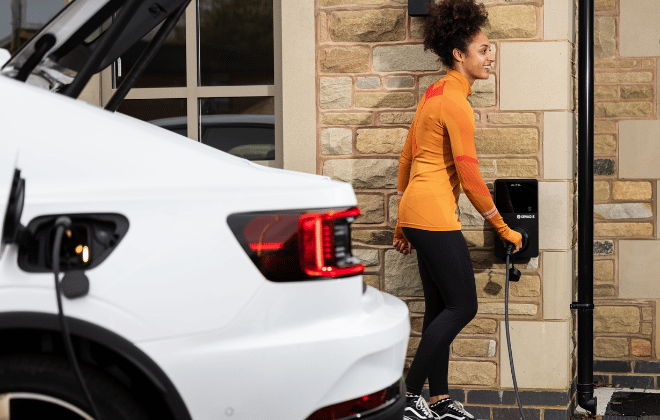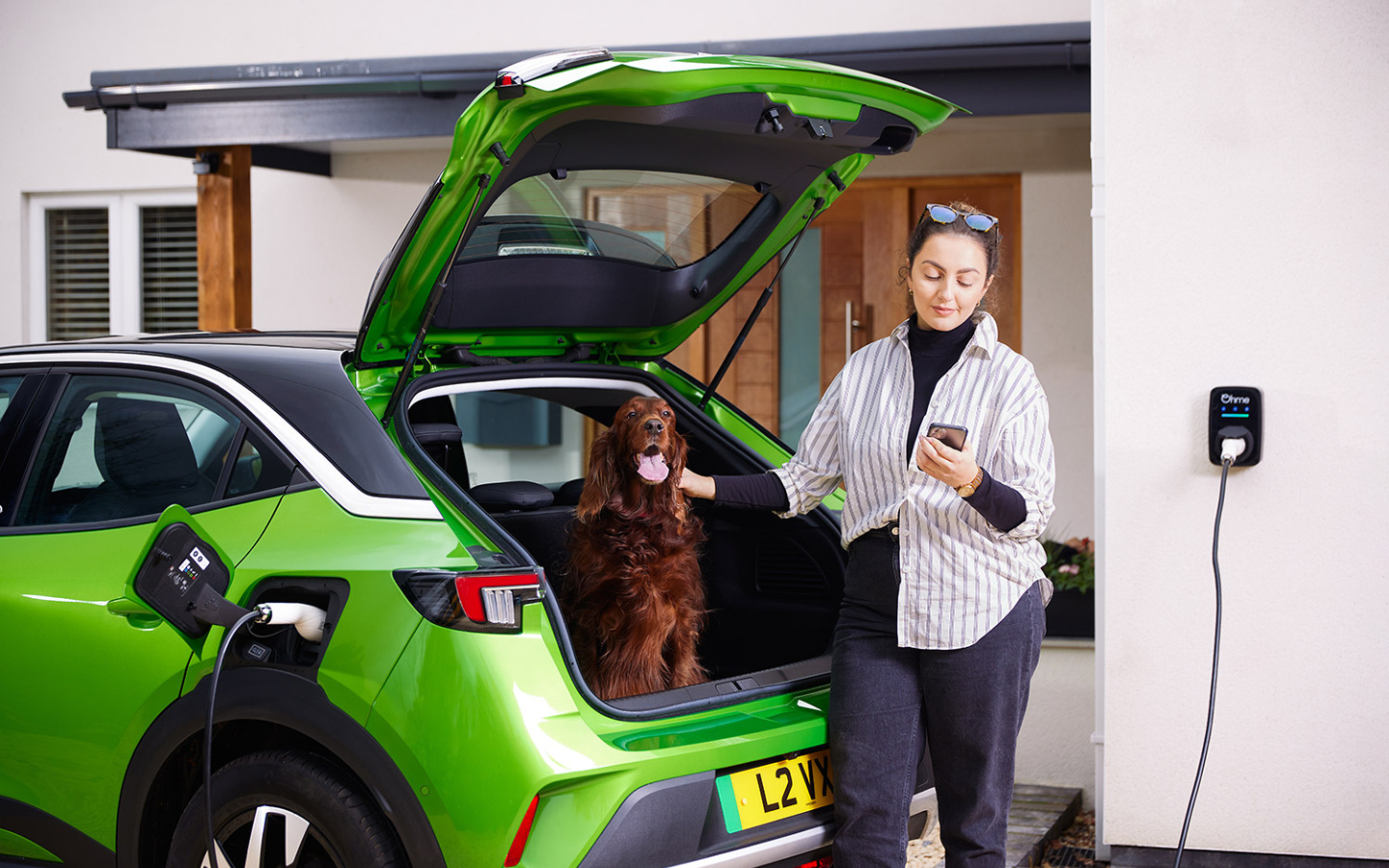

Tethered VS Untethered EV Chargers
Tethered vs untethered EV chargers – a guide
Cheaper, greener and more convenient EV charging sessions are all guaranteed with a dedicated home EV charger. But, upon your research, you may have come across the terms tethered and untethered. And if so, you’re probably wondering – what’s the difference between tethered and untethered EV chargers? Are they the same? What are the differences? Is a tethered charger better than an untethered charger?
We’re here to help.
Keep reading to learn everything you need to know about tethered and untethered EV chargers in our extensive guide.
What’s the difference between tethered and untethered EV chargers?
Tethered and untethered EV chargers, in essence, work to charge your electric car in exactly the same way – using electricity to charge your vehicle. But, there is a clear difference, which lies with the design, specifically the EV charging cables.
In short, tethered EV chargers have the charging cable permanently attached. They also only have a Type 2 connector in the UK. On the other hand, untethered EV chargers do not have the cable attached, meaning you have to continuously plug in a separate charging cable into your electric car and the unit.
Since you will likely use the cable supplied with your electric car when using an untethered EV charger, untethered EV chargers are compatible with Type 1 or Type 2 connectors, making them universal.
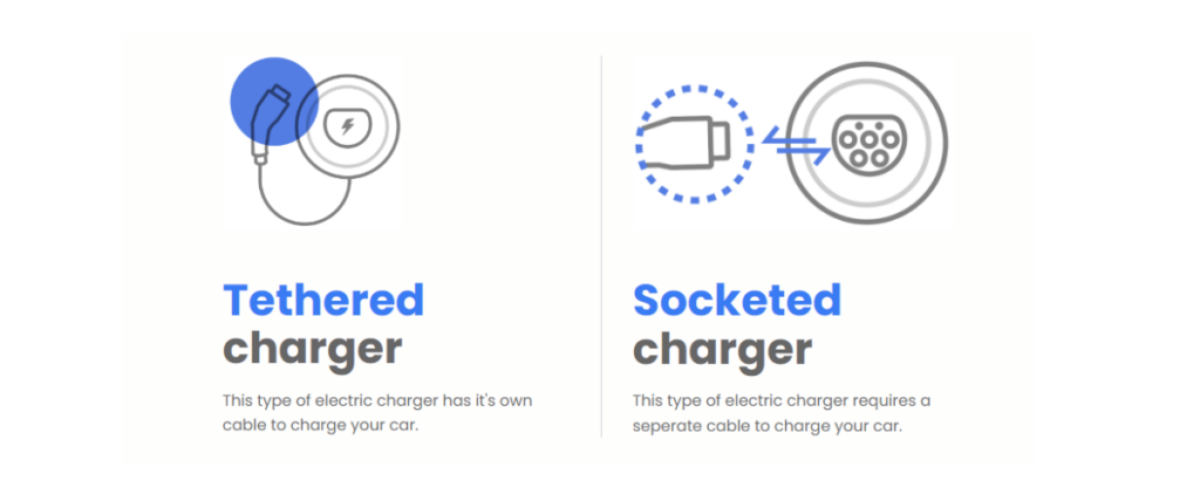
What is a tethered EV charger?
A tethered EV charger has the charging cable permanently attached to the unit. Think of it like a petrol station pump, where the hose cannot be removed.
Since the cable is attached to the EV charger, you do not have to purchase a separate charging cable at the point of charger purchase. But it does mean tethered EV chargers are more expensive than untethered chargers.
If you have already invested in an electric car and use some of the 64,775 public charging points in the UK, you’ll have encountered a tethered charger before. All public electric vehicle charging points in the UK are tethered, as are all Tesla EV charging points.
When purchasing a tethered EV charger, you’ll have to choose the length of your tethered cable – usually this ranges from two to ten metres. It goes without saying that the longer the cable, the more expensive the EV charger.
Why invest in a tethered EV charger?
1. Tethered chargers are convenient
One of the main advantages of having a tethered EV charger is that you do not have to mess around with connecting and disconnecting the charging cable; it’s easily accessible. This is especially beneficial when you are in a rush and in certain weather conditions (think heavy rain or snow) when every second outside counts. Therefore, tethered EV chargers are the best choice for EV owners who value convenience.
Unlike untethered EV chargers, which are typically stored elsewhere (boots or garages), you can wrap the charging cable around your tethered charger, too. Some chargers even have holders which you can place the cable into for neater storage.
2. Theft protection
Secondly, tethered EV chargers provide an added layer of theft protection to your home EV charger compared to untethered EV home chargers. With tethered units, the cabling is embedded directly into the unit, ensuring it can’t be stolen.
Replacing charging cables can set you back approximately £100-£200, so if you are interested in 24/7 permanent security from cable theft, a tethered EV charger is the right choice for you.
Tethered Ohme Home Pro EV charger
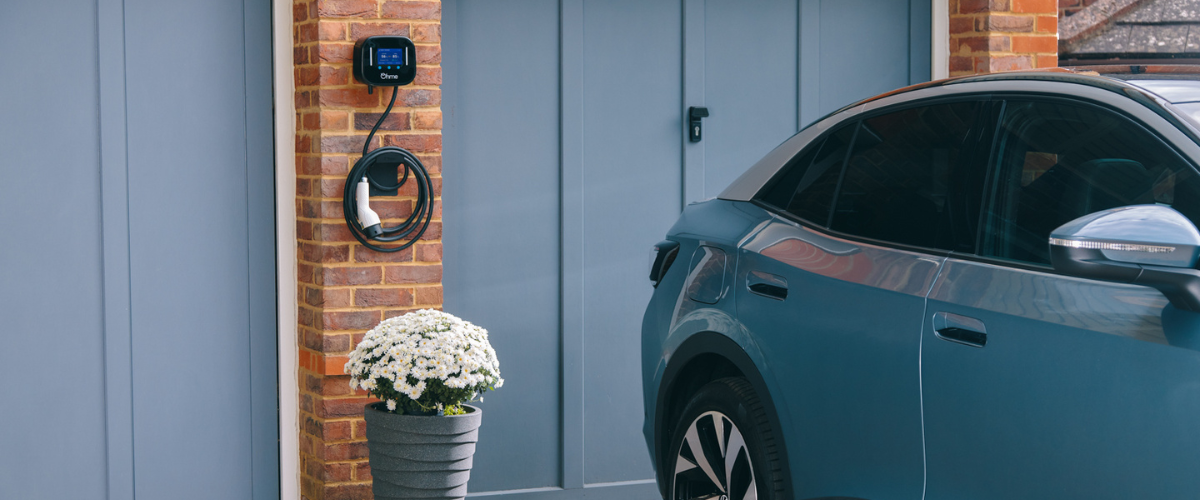
What is an untethered EV charger? (What is a socketed EV charger?)
An untethered EV charger is when the charging cable is not permanently attached, meaning it’s separate from the EV charger itself. Sometimes, untethered EV chargers are called “non-tethered” or “socketed”, but untethered is the most common.
Unlike a tethered charger, every time you want to use your untethered EV charger, you will have to plug one side into the unit and the other into your EV. Think of it like a phone charger, where you have to plug the cable into the three-pin socket and your phone, then store it elsewhere.
With an untethered unit, you can use the cable provided by your car manufacturer or buy the cabling as an additional purchase. Different lengths are available for the socketed cabling; some can provide other benefits, such as enabling a cable lock for security.
Ohme ePod Socketed EV charger (no cable attached)
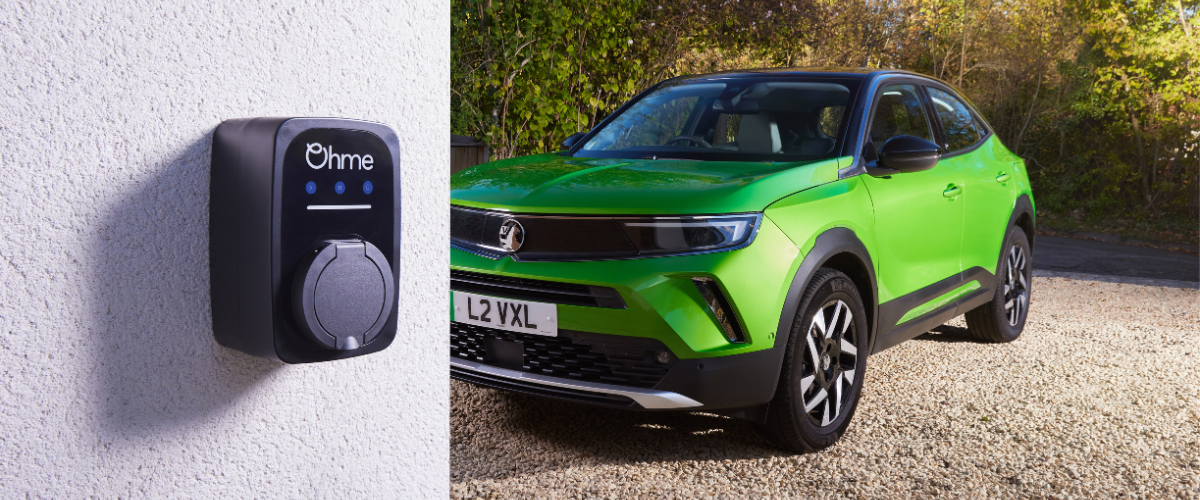
Why invest in an untethered electric car charger?
1. Untethered EV chargers allow flexibility
An untethered EV charger offers more flexibility than a tethered charger. If you have guests who have their own EV, they should be able to charge their vehicle at your house using your untethered EV charger, given that their specific type of cable fits in place (i.e. Type 1 or Type 2), or if they have an adapter (Type 1 to Type 2 cable).
If the cable attached to your tethered EV charger is non-compatible with your guests EV, you are restricted with its use. This would mean your friends would have to go elsewhere or resort to a pesky 3-pin plug charger.
2. Futureproof
As the untethered cable is not fixed to the unit, you can ensure your EV charger remains futureproof. So, if you decide to change your EV in the future, you can without worrying about repurchasing an entirely new EV charging point – you only have to buy a new cable (and only if it doesn’t come with your new EV).
In another case, if you decide your charging cable is too short or too long, or you just fancy a change, you don’t have to purchase another EV charger as you would with a tethered charger. So, you aren’t limited to the cable you possess at the beginning. This is especially helpful if you have your drive re-done and change where you want to park, as with a tethered EV charger, the cable might not be able to reach.
3. More aesthetically pleasing (subjective)
In truth, untethered EV chargers tend to be more aesthetically pleasing. If you are not a fan of thick cables being on show, you can remove the cable whenever you want and place them wherever you want, which means you can move (or hide) them out of sight.
In a similar fashion, untethered chargers ensure no messy cables trailing across your land if they haven’t been securely and tidily put back on the unit.
That being said, some tethered chargers still uphold their sleek look by offering holders, or they are designed specifically so the cable is discreetly and neatly tucked away.
While this may be true, not all of them are designed with aesthetics in mind. When it comes to choosing, have a think about where you would put the attached cable if not. Usually, the upper range of home EV chargers caters for the cable, though, so it just depends on your own personal style and budget.
Is it best to have a tethered or untethered EV charger?
In the fight between tethered vs. untethered EV chargers, there’s no clear-cut winner. In our opinion, tethered EV chargers are not better than untethered EV chargers, and vice versa. Overall, the decision comes down to your own personal preferences, budget and the specific aesthetic you are after for your home charger.
But, as a general guideline, if you value convenience over style, a tethered EV charger would be the best solution for you. On the other hand, if you want a neat, discreet charger with added flexibility, an untethered EV charger would be the best choice.
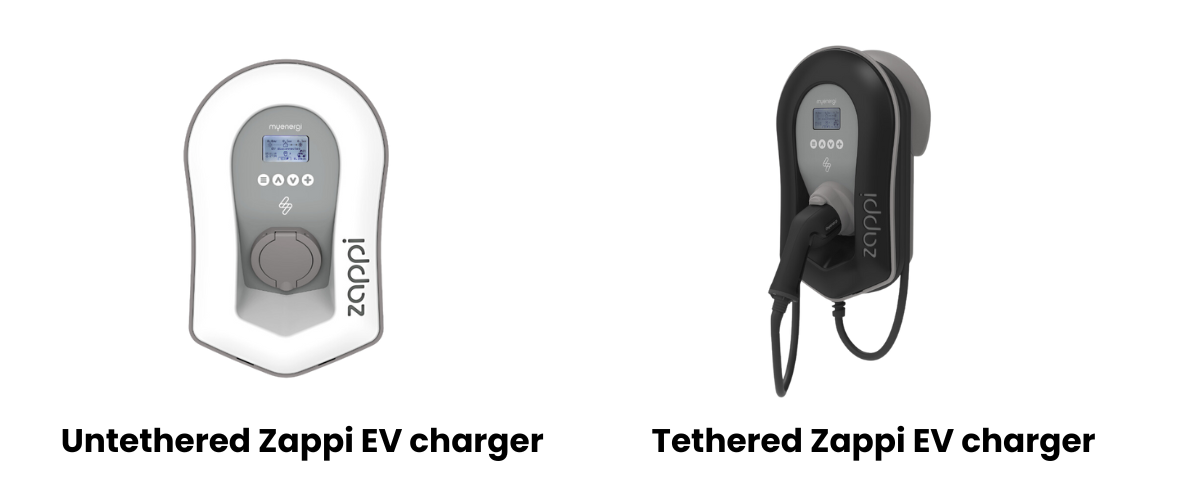
Can an EV charger be both tethered and untethered? Can I convert an untethered EV charger to a tethered?
Whilst the answer is technically no, you can’t convert an untethered EV charger to a tethered one – there are ways to get an untethered electric vehicle charger to act like a tethered EV charger with the cable lock feature.
Take the Easee One, for example. This untethered EV charger allows you to lock your charging cable in place, giving the unit the look and feel of a tethered EV charger.
Then again, not all home EV chargers offer the cable lock feature, so if you want the flexibility of having an untethered EV charger that can act like a tethered one, you need to check the electric car charger specification.

Summary:
| Benefits of untethered EV chargers | Benefits of tethered EV chargers |
| Flexibility | Convenience |
| Futureproof | Added layer of theft protection |
| More aesthetically pleasing |
If you would prefer to watch than read, check out our video on this topic.

Are you looking to get a tethered or untethered EV charger installed?
If you are thinking about getting a home EV charger installed, whether untethered or tethered, click below to get your free quote, or contact us for more information or any queries you may have.
We install home, workplace and commercial EV chargers nationwide – all with first-class customer service. Not only that, but we handle the entire process on your behalf from DNO application to grant paperwork – making EV charging simple.
For more information and our latest updates, follow us on Facebook, Instagram, Twitter, LinkedIn and YouTube.
Related articles_
Stay up to date on the latest from We Power Your Car_
I consent to receive newsletters from We Power Your Car. Please see our Privacy Policy
